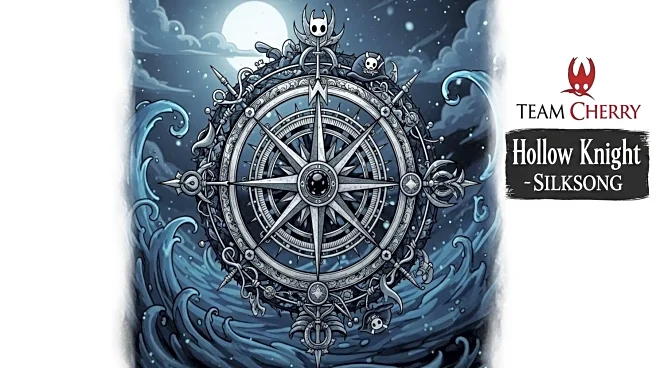What's Happening?
Hollow Knight: Silksong, developed by Team Cherry, launched on September 4, 2025, and quickly became a massive success, with over 535,213 concurrent players on Steam. Despite the availability of a cracked version due to its DRM-free release on GOG, veteran video game pirates are urging their peers to purchase the game instead. This unusual support stems from the goodwill towards Team Cherry, a small indie developer known for honoring promises made during the original Hollow Knight Kickstarter. The game is priced at $20, and the developers have ensured a free upgrade for the Nintendo Switch 2 version, further enhancing their reputation as 'the good guys' in the gaming community.
Why It's Important?
The support from pirates highlights the strong reputation Team Cherry has built within the gaming community. This development could signal a shift in how indie games are perceived and supported, potentially encouraging other developers to adopt similar practices. The goodwill towards Team Cherry may lead to increased sales and further success for the studio, demonstrating the impact of ethical business practices in the gaming industry. This situation also underscores the importance of community engagement and transparency in fostering loyalty and support from consumers.
What's Next?
The continued success of Hollow Knight: Silksong may inspire other indie developers to follow Team Cherry's model of transparency and community engagement. As the game gains traction, it could lead to more discussions about the ethics of piracy and the importance of supporting developers who prioritize consumer-friendly practices. The gaming community's response may also influence larger studios to reconsider their approach to DRM and pricing strategies.
Beyond the Headlines
The reaction to Silksong's launch raises questions about the cultural and ethical dimensions of piracy in the gaming industry. It suggests a growing awareness and appreciation for developers who prioritize consumer interests and ethical practices. This shift could lead to long-term changes in how games are marketed and sold, with a focus on building trust and loyalty among players.

